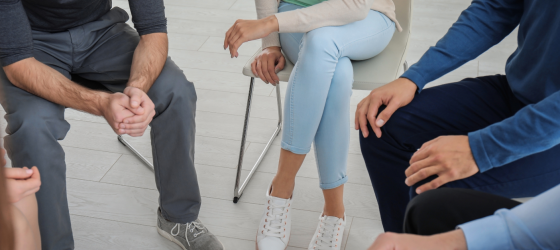Code 9286
Coordinator: Andrea Aguglia
Coordinator of Technical-Practical Teaching and Internship: Annapaola Mazza
Educational Organization
The curriculum is divided into semesters, with mandatory attendance for both academic and professional training activities. Training covers fundamental elements related to mental functions, psychopathological phenomena across different age groups, psychiatric rehabilitation basics integrating various theoretical paradigms applied in rehabilitative practice, and basic psychology concepts. The educational offer includes theoretical and practical components such as lectures, internships, and laboratories.
The Bachelor’s Degree in Psychiatric Rehabilitation Techniques qualifies graduates to practice as licensed Psychiatric Rehabilitation Technicians and lasts three years.
Learning Objectives and Career Opportunities
Graduates in Psychiatric Rehabilitation Techniques:
Collaborate in assessing mental disabilities and individual potential;
Analyze developmental needs and reveal resources within the family and social environment;
Assist in identifying therapeutic and rehabilitation goals, as well as in formulating targeted intervention programs aimed at the recovery and development of the patient;
Implement habilitation and rehabilitation interventions to support self-care and interpersonal relationships of varying complexity, and, where possible, work-related activities;
Operate in primary prevention efforts in the community to promote network development for managing and supporting at-risk situations;
Work with families and social contexts to facilitate patient reintegration into the community;
Collaborate in evaluating the outcomes of habilitation and rehabilitation programs relative to the set objectives;
Contribute to the training of support personnel and actively participate in professional development and research related to their professional profile;
Practice professionally in public or private healthcare facilities, either as employees or independent practitioners.
Areas of Intervention for the Psychiatric Rehabilitation Technician
The Core Competence document for the Psychiatric Rehabilitation Technician, developed in 2018, aims to define the key competencies and fundamental role of the Psychiatric Rehabilitation Technician. It is based on the professional profile, educational objectives, and core standards for the three-year degree, contextualized within the population’s health needs.
The Core Competence outlines the profession’s peculiar skills in three dimensions: cognitive, operational, and affective.
Rehabilitation Function
Assessment of rehabilitative and educational needs and resources; planning rehabilitation using appropriate therapeutic methods to develop a treatment plan based on Evidence-Based Medicine (EBM) and Evidence-Based Practice (EBP). The intervention must be individualized and implemented with relational-communication competence to manage relational dynamics effectively and support the therapeutic alliance.Prevention and Health Education
Activities and skills related to analyzing community health issues and responses from healthcare and social services; implementing interventions for individuals and groups across all ages and levels of prevention.Organization, Coordination, and Management Function
Activities and skills related to organizational and managerial aspects and tools, aimed at assuming responsibility and ensuring professional conduct.Training Function
Responsibilities related to self-training and self-assessment, university education of students, and training/information directed toward users, families, and the wider community.Research Function
Activities and skills based on foundational research methodology knowledge, aimed at analyzing appropriateness in terms of effectiveness and efficiency, critically approaching scientific literature, and advancing knowledge to improve treatment practices.
